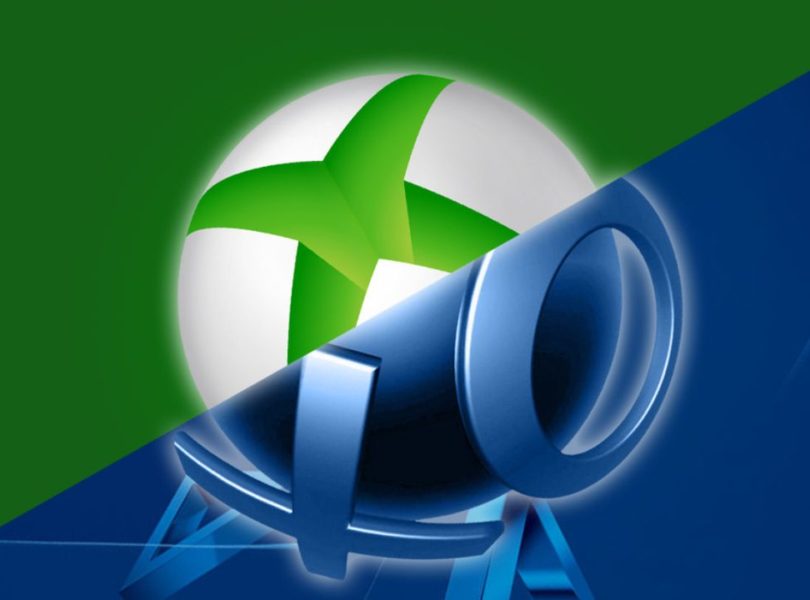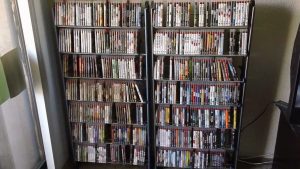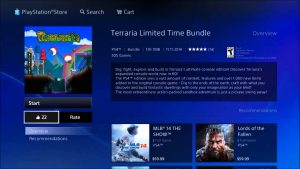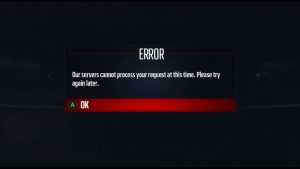Sooner or later, EVERYTHING is going to go digital!
Variety recently posted an article on their website that started an interesting discussion between the crew here at Digital Crack. The article spoke about the desire of six of the biggest movie studios to offer new-release movies for home viewing. This is not new. Last year, the proposal would offer first-run movies to home viewers who have a special $150 set-top box. For an extra $50 per movie, the new movies would be available at home 17 days after release for a 48-hour period. The new proposal would reduce the price to $30 and be available from 20-45 days after release.
These plans are naturally vehemently opposed by the theater owners. They contend that offering first-run movies at home will destroy the theatergoing experience. That’s mostly true. While IMAX theaters and places like Cinebistro will offer experiences different enough to entice moviegoers, most regular theaters are hosed. Speaking for myself, I’d much rather pay $30 to watch Black Panther at home than potentially spend more fighting traffic and bad parking to see it in a theater.
The crew spent the next few minutes discussing the possibilities. It’s a given that rival studios would try to one-up each other, offering customers incompatible services with different perks, a la Netflix vs Hulu. I pondered that a big theater chain like AMC might try to offer a similar service as well as a way to lessen the negative impact on its theaters. It was a fun thought exercise.
One thing we never debated, though, was whether or not it was going to happen. The theater owners may hate the idea, but there is one truth they better get used to real soon:
Sooner or later, EVERYTHING is going to go digital!
The Times, They Are A-Changin’
Ask yourself this question: when was the last time you bought a CD? What about a DVD? Maybe you’ve purchased a physical book recently? Hey, PC gamers, what was the last physical PC box you purchased? Not sure? Can’t remember?
South Korean company SeaHan Information Systems introduced the first MP3 player in 1997. Since then, modern entertainment has moved away from physical media and towards digital distribution. Each and every physical form of entertainment has been replaced by a digital facsimile.
I absolutely love physical media, but I have all but given up my desire to stockpile physical copies of anything. All my purchased music and movies are digitally ripped into my Plex server. The server also houses my digital pictures; I haven’t touched a roll of camera film in half past forever. I have subscriptions to Netflix, Hulu, and Crunchyroll. My Amazon Prime subscription gives me access to near-unlimited music through my Echo Dot, plus tons more movies and TV shows. My tablet and smartphone have Amazon Kindle installed. My tablet also has Comic Rack, which displays my digital comic book collection.
Even the majority of my video game library has gone digital. My Steam library is kinda sparse, but I have it. I have tons of physical discs, cartridges, and cards for my many video game consoles, but I also have a Raspberry Pi with RetroPie installed. That alleviates the need to hunt through drawers and drawers full of games.
Oddly, I still hold on to my desire for physical media when it comes the last three generations of consoles. The window sill of my man cave is loaded with games for the PS3, PS4, and Xbox One. I have a shelf full of Xbox 360, DS, Wii, and Wii U games. I load up on these physical discs every chance I get. Most of my Digital Crack mates have embraced digital purchases for those consoles already. Cousin Jose and I are the only holdouts.
Why am I holding on to my physical copies? Part of it is my collector’s spirit; I love collecting video games. A bigger part, however, is rebelling against the inevitable. Sony, Microsoft, and Nintendo are looking to go to full digital distribution eventually. I don’t like the idea of them limiting my purchasing options. Sooner or later, though, I’m going to feel as disappointed as theater owners are going to feel in a few years.
I may hate the idea, but there is one truth I better get used to real soon:
Sooner or later, EVERYTHING is going to go digital.
Worried About the Future
The next generation of consoles may be the first to fully embrace digital distribution. It would have probably happened already, except Microsoft was lambasted during E3 2013 for even broaching the idea with their then-new Xbox One. Many people do love their physical copies, but that is changing. From 2014 on, digital copies of console video games have been selling more than physical copies.
Digital distribution is very enticing to many gamers because of the convenience of it. Instead of having to head out to a GameStop or Best Buy to purchase the game, gamers can purchase the game, have it download to the console of their choice, and play the game once done. Convenience is digital distribution’s trump card. People will always pay for convenience. It’s what makes services like Amazon Prime Now and iTunes so successful. It’s what makes the prospect of watching first-run movies at home so tantalizing.
Digital distribution of video games on consoles, however, brings with it a few complications unique to the platforms. How Sony, Microsoft, and Nintendo handle these complications will dictate how much gamers will benefit from going all-digital.
-
Price
I’m putting this one first because it’s the easiest for them to fuck up.
Currently, it costs the same amount of money to buy a digital copy of a game versus a physical copy. Simple economics says that shouldn’t be. At the very least, the cost of physical distribution combined with the costs of manufacturing the physical media should be removed from digital copies.
Game publishers have a good answer for this one. According to them, the prices of digital copies are kept the same as physical copies so as to not hurt retailers. There is some truth to that. If I can buy a digital copy of a game for $10 less than a physical copy, simple economics will kick in and demand that I buy the less expensive option. That will definitely rankle the GameStops and Wal-Marts of the world, who are selling the consoles and depend on the sale of games as well.
So let’s say the PlayStation 5 and the Xbox whatever-they’re-gonna-call-it are released as digital-only consoles. With no retail stores to sell physical copies, surely the prices will drop then.
Do you really trust publishers like EA, Activision, and Ubisoft to willingly lose profits in a show of fair play?
AAA publishers have us used to paying $60 for games. They will keep us paying $60 for their games no matter how it’s distributed. If they could, they’d jack the price up to $70 and make us like it. What are we going to do, stop playing games?
Back in 2013, former EA CEO John Riccitiello hinted that variable pricing for video games would be a good thing. His exact quote was, “$60 is a giant FU to a very large number of people.” Of course, he said this after he left EA. While at EA, he was pondering how to sell bullets to gamers. Origin, EA’s PC storefront, sells PC games there. NONE of their new releases are ever less than $60.
Remember, people are willing to pay for convenience. If that means that they have to pay the same amount of money for something that is cheaper to make, them’s the breaks.
-
Transfer Speeds
Here’s a fun little exercise you can try when you want to throw away some money. Pick any multi-platform title that is available via Xbox Live, PSN, and Steam/Origin/Uplay. Purchase a digital copy of that game on each storefront. Then begin to download it and time low long it takes to download to each platform.
I guarantee you that the PS4 version of the game will take up to FIVE TIMES AS LONG to download as the PC version. The Xbox One will download its game faster, but the PC will still smoke it. In some cases, after you download the games on Xbox One or PS4 and start it up, you may need to download MORE game data before you can even play!
For those of you that want to point out that it’s not a fair comparison because PCs are a superior online platform, that’s kind of the point.
Sony and Microsoft want to compete in the digital space for our dollars. But both of them, Sony especially, are trying to do so with severely gimped network infrastructures. The PS4 has always been infamous for having slow download speeds. I’ve had numerous occasions where just downloading an update to a game takes the better part of a day and regularly stops completely. This is while using a hardwired Ethernet connection and no other uploads or downloads taking place.
My Xbone fares better but still take a painfully long time to download games or updates. My PC, meanwhile, can download entire Steam games in half an hour. My connection is not that fast – 25Mb download speed from Comcrap – but if my PC can handle it and my PS4 can’t, it’s obvious where the problem is. I haven’t touched Nintendo and their soon-to-be-released online service for the Switch because it hasn’t been rolled out yet. But if the performance of the Wii and Wii U’s networks are any indication, their service will be a shit show as well.
Digital-only consoles will have to improve this aspect of the experience or suffer the wrath of very angry gamers.
-
Ease-of-Use
Sony has stated that it believes its true competition is the PC. If that’s the case boys, the competition is over before it truly ever starts.
Once upon a time, a console had a marked advantage over PC for the average gamer. The PC as a gaming platform is expensive and maintenance-intensive. Components need to be upgraded with newer, faster parts in order to play the latest games. The operating system needs to be updated and tweaked to ensure maximum performance. In short, it’s not a completely hassle-free experience.
Older consoles were much simpler to operate. They were more like appliances than complex electronic components. You simply loaded a game, pressed power, and picked up the controller. For disc-based systems, the first two directions were sometimes reversed, but the result was the same. The console’s mantra was a simple one: it just works.
Nowadays, that is far from the truth. Things that the PC can do easily are chores on modern consoles. Games need to be updated constantly on consoles, which exacerbates their weak downloading speeds. The Xbone and PS4 are woefully underpowered to keep up with a decently configured PC. As a result, Microsoft and Sony have had to introduce mid-generation consoles with beefier specs to play games at a resolution and speed approaching a PC’s capabilities. These things all add up to an experience that’s a far cry from “it just works.”
Oh, and the multiplayer? Microsoft and Sony want you to shell out $60 per year to play games with your friends on their services. Steam, Origin, and Uplay are free on the PC. So much for real competition.
If future digital-only consoles want to seem like viable choices, console manufacturers really need to get back to the “it just works” model. If not, the PC could potentially be the best all-around platform.
-
Server Lifespan
I touched on this once before, but it bears repeating. What happens when a digital-only game’s servers go dark? What happens when digital rights for a game are lost and you had to delete your copy of the game to make space for another damn update? What happens when Microsoft or Sony decide that their online service won’t work for your console anymore?
When Deadpool and Ultimate Marvel vs Capcom 3 were pulled from PSN and Xbox Live due to licensing issues, I didn’t care. I have physical copies of both. Had I wanted to purchase them in the time the games were de-listed, I’d be fresh outta luck digitally but still buy them at GameStop. When Microsoft ended Xbox Live on their original Xbox, my copies of Halo, Madden 06, and Phantasy Star Online: Episode I & II were suddenly much less useful than they were before.
When GameSpy shut down, Rockstar had to patch Red Dead Redemption to allow customers to keep playing online. NetherRealm Studios had to do the same for Mortal Kombat. Not all companies do: EA saw fit to take the servers for Battlefield 2, Battlefield 2142, Crysis 2, and many more games down. Sure they’re old games, but people were still enjoying them.
The usefulness of multiplayer on console games is entirely dependent on a publisher’s desire to keep that component running. With the number of multiplayer-only games that have released on consoles as of late, that’s a disheartening fact. PC games are luckier in that regard. It’s not too much of a hassle for PC gamers to use third-party matchmaking services like Kali to resurrect older games whose servers disappeared long ago. Console gamers are mostly out of luck unless they have the leet-haxxor skills to do so through a PC.
When games go completely digital on consoles, game publishers and platform owners could very well dictate what games you can play and how you can play them.
Is everything really as doom-and-gloom as I make it seem to be? Not really. As I mentioned before, the digital distribution of console games is big business right now. There are problems right now, but by the time the PS5 and Xbox Insert-Name-Here debut – IF they debut – can be digital-only and work flawlessly. Of course, that requires both Sony and Microsoft to want to commit to the digital-only model with their next consoles. It requires that they hammer out all the bugaboos that the current delivery systems have. It requires that they commit to having robust services that won’t handicap or short-change their customer bases. And most of all, it requires that game publishers refrain from trying to use the digital-only format to gouge their customers with shitty pricing policies.
That for me is the true sticking point. EA, Activision, and the rest of the AAA crowd have never really cared about whether or not they overcharge for games or force charges for things like bullets in games. To them, $60 is a NOT a “giant FU to a very large number of people.” To them, $60 is a starting point. If they can get that starting point to go higher, the better for them.
We may hate the idea, but there is one truth we better get used to real soon:
Sooner or later, EVERYTHING is going to go digital. Including anti-consumer business decisions.








